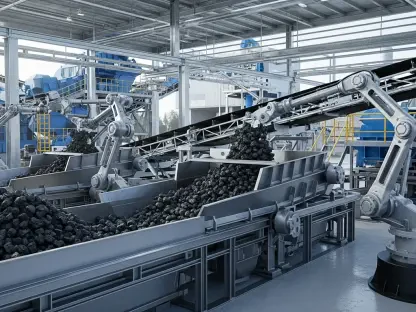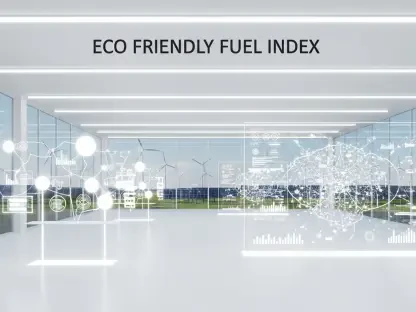What happens when the pursuit of a greener, more ethical world clashes with the gritty realities of politics and profit? Picture a Europe striving to lead the charge against environmental destruction and human rights abuses, only to stumble under the weight of corporate lobbying and shifting political tides. The European Union’s landmark Corporate Sustainability Due Diligence Directive (CSDDD), once hailed as a game-changer, is now being stripped of its power. This rollback, unfolding in 2025, signals a critical juncture for sustainability in the region, raising alarms about whether ambition can survive in the face of resistance.
A Shocking Retreat: Why Is the EU Stepping Back?
The EU has long positioned itself as a global beacon for sustainability, championing policies that demand accountability from businesses. Yet, a startling shift has emerged as lawmakers, facing fierce opposition, have chosen to weaken the CSDDD—a law designed to hold companies accountable for their supply chains. This retreat isn’t just a policy tweak; it’s a reflection of deeper tensions between lofty environmental goals and the immediate pressures of economic competitiveness.
Behind closed doors, a coalition of political forces and industry giants has argued that stringent regulations threaten jobs and growth. The decision to dilute this directive, originally meant to combat issues like child labor and deforestation, has sparked a firestorm of debate. How did a region so committed to progress arrive at this crossroads, and what does it mean for the future of ethical business practices?
The Heart of the Matter: Why CSDDD Carries Such Weight
At its core, the CSDDD was crafted to address some of the most pressing horrors tied to global trade. From cobalt mines exploiting child workers to rainforests razed for consumer products, the directive sought to make EU-based companies liable for harms in their supply chains, with fines up to 5% of global turnover for non-compliance. It was a bold move to ensure that profit doesn’t come at the expense of people or the planet.
This law wasn’t just about punishment; it was about transformation. By forcing businesses to scrutinize their operations, it aimed to foster a culture of responsibility across industries. However, as economic challenges loom large in Europe, the directive has become a lightning rod, exposing a rift between those who prioritize sustainability and those who see it as a barrier to prosperity.
Breaking Down the Changes: What’s Being Lost?
On November 13, a pivotal vote reshaped the CSDDD, slashing its scope in ways that stunned advocates. The compliance threshold for companies jumped from 1,000 employees and 450 million euros in turnover to 5,000 employees and 1.5 billion euros, effectively exempting nearly 90% of the businesses initially targeted. This drastic cut means far fewer firms will face scrutiny for their global impact.
Beyond the numbers, critical mandates have been erased. Obligations to develop climate commitment plans and report on social and environmental impacts were scrapped, gutting the law’s transformative potential. Enforcement has also been delayed to July 2027, offering companies a longer reprieve. These changes stem from a rightward political shift in the EU Parliament, where center-right and far-right alliances, alongside international pressures from nations like the U.S. and Qatar, have prioritized deregulation over reform.
Clash of Perspectives: Who Stands Where?
The battle over the CSDDD has unleashed a cacophony of voices, each staking a claim in this high-stakes drama. Swedish center-right lawmaker Jorgen Warborn has defended the amendments, asserting they relieve businesses of “crippling bureaucratic burdens” and save an estimated 5 billion euros annually. Corporate heavyweights like TotalEnergies and ExxonMobil have gone further, urging a complete scrapping of the law, citing its impact on EU operations.
In contrast, companies such as Ikea and Aldi have endorsed due diligence, framing it as both a moral imperative and a competitive edge. Meanwhile, critics like Greens co-president Terry Reintke have lambasted the political alliances driving this rollback, warning of a “devastating precedent” for sustainability. Geopolitical concerns, including fears of disrupted gas supplies, add another layer of complexity to an already heated discourse.
Charting a Path Forward: Bridging the Divide
As negotiations over the final text of the CSDDD continue between EU Parliament representatives and governments, with a resolution expected by the end of this year, there’s still room to salvage its intent. Advocates can amplify their impact by pushing for transparency in these talks and rallying public support through stories of real-world supply chain abuses. Such narratives could reignite urgency around the human and environmental toll of inaction.
Businesses, even those now exempt, can take the lead by voluntarily adopting ethical practices, responding to growing consumer demand for accountability—Ikea’s approach serves as a compelling example. Policymakers, meanwhile, might find middle ground by reinstating key provisions like climate plans while offering phased timelines to ease corporate burdens. These steps could help maintain the EU’s credibility as a leader in responsible governance without sacrificing economic stability.
Looking back, the struggle over the CSDDD revealed a profound clash of values within Europe, where the promise of sustainability collided with the hard edges of political and economic priorities. The amendments marked a victory for deregulation advocates, yet they also ignited a broader reckoning about the cost of compromise. Moving ahead, the challenge lies in finding ways to rebuild trust in the EU’s commitment to a better world, whether through grassroots pressure, corporate initiative, or legislative innovation. The path is uncertain, but the stakes have never been clearer.









